#Cardinal John Henry Newman
Photo
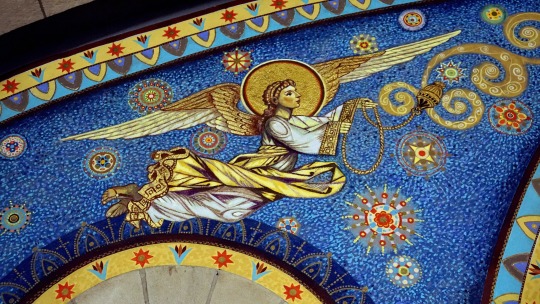
"You do not love yourself better than God loves you. You cannot shrink from pain more than He dislikes your bearing it; and if He puts it on you, it is as you would put it on yourself, if you would be wise, for a greater good afterwards.
God has created me to do Him some definite service; He has committed some work to me which He has not committed to another. I have my mission -- I may never know it in this life but I shall be told it in the next. I am a link in a chain, a bond of connection between persons. He has not created me for naught. I shall do good, I shall do His work. I shall be an angel of peace, a preacher of truth in my own place while not intending it if I do but keep His commandments.
Therefore I will trust Him. Whatever I am, I can never be thrown away. If I am in sickness, my sickness may serve Him; in perplexity, my perplexity may serve Him. If I am in sorrow, my sorrow may serve Him. He does nothing in vain. He knows what He is about. He may take away my friends. He may throw me among strangers. He may make me feel desolate, make my spirits sink, hide my future from me -- still He knows what He is about.
Let us feel what we really are--sinners attempting great things. Let us simply obey God's will, whatever may come. He can turn all things to our eternal good. Easter day is preceded by the forty days of Lent, to show us that they only who sow in tears shall reap in joy. The more we do, the more shall we trust in Christ; and that surely is no morose doctrine, that leads us to soothe our selfish restlessness, and forget our fears, in the vision of the Incarnate Son of God."
~John Henry Newman
(Photo © dramoor 2017 Basilica of Sainte-Anne-de-Beaupré, Quebec, Canada)
#churches#Christian art#angel#mosaic#Basilica of Saint Anne de Beaupre#travel#Quebec Canada#photography#photographers on tumblr#love#trust in God#Do God's work#obey God's will#Lord Jesus Christ#Cardinal John Henry Newman
129 notes
·
View notes
Text
Heart speaks to heart.
— Cardinal John Henry Newman
12 notes
·
View notes
Text
The builder of railroads has a clear enough idea of the utility whereby he judges the value of his education; it is made manifest in rails that do not warp and axles that do not crack. He is still bound to a salutary though severely constricted truth. The political player—the man who falls in adoration before the cloaked vacuity of politics as the summum bonum—can have no such clear idea, because man will always frustrate anyone who demands perfection on earth, or even reliable prosperity and peace. The builder of railroads, when a gear turns up worn or toothless, alters the design of the gear or seeks a more durable alloy. The political player, when he meets with inevitable disappointments and reversals, turns in anger against his opponents, who must be wicked, or against the very mankind whom he purports to raise up.
The builder of railroads is interested in railroads; the academic politician is interested in victory. He has the moral code of Machiavelli, but, because he is too impatient to submit to the instruction of history, he has not the old master’s shrewd sense of human limitations and contradictions. He makes the worst of rulers: he is neither a lover of truth, nor a practical man of the world, nor an habitual examiner of his all-too-human and persistent failings.
If a young person comes to believe that education is to be valued as preparation for political action—if his English teachers choose novels not for their beauty and their insight into the human condition, but for their usefulness in advancing a political cause; if his history teachers encourage not that forbearance that tends to forgive the faults of those who have come before us or who lived under conditions whereof we have no experience, but rather an easy and self-confident judgment of their moral darkness because they were not like us in all things; if his art teachers foster contempt for the patient and heart-breaking quest for precision, and substitute for it indulgence in what is supposedly “edgy” but is merely tiresome and politically tendentious—then I fear that he will be, strictly speaking, ineducable, a monolith of manufactured stolidity.
#Anthony Esolen#politics#culture#reactionary#traditionalism#modernism#modernist#cardinal john henry newman#university#higher education
3 notes
·
View notes
Text

Saint John Henry Newman
1801-1890
Feast day: October 9
John Henry Newman, also referred to as Cardinal Newman and the Saint John Henry Newman was an important figure in the religious history of England in the 19th century. He was known nationally by the mid-1830s. Originally an Evangelical Oxford academic and priest in the Church of England, he left the Church of England in 1845 and was received into the Roman Catholic Church where he was eventually granted the rank of cardinal by Pope Leo XIII. His canonization is on October 13, 2019
Prints, plaques & holy cards available for purchase here: (website)
76 notes
·
View notes
Text
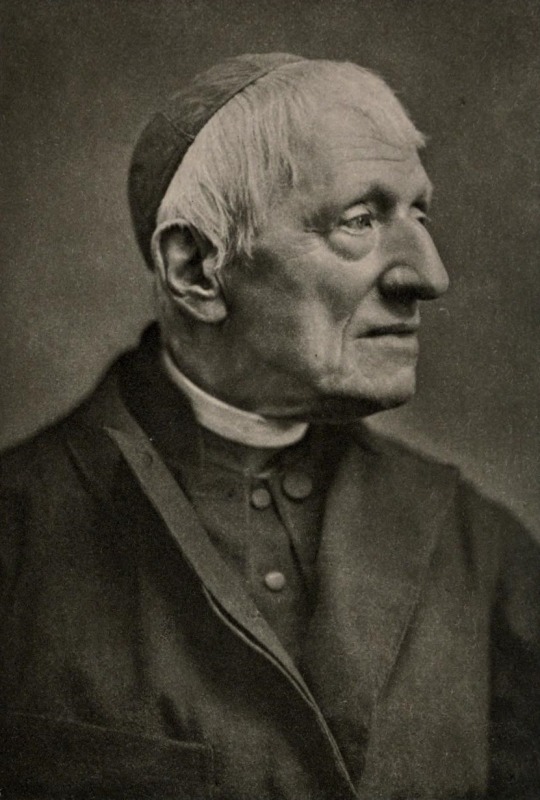
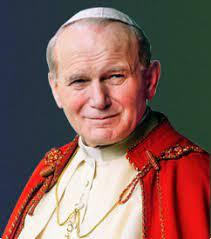
About St John Henry Cardinal Newman (left)
About Pope St John Paul II (right)
Modern Bracket Round 1
#st john henry newman#st john henry cardinal newman#st john paul ii#pope st john paul ii#catholic saint tournament#tumblr polls#theology#tumblr tournament#polls#tumblr bracket#christianity#catholic saints#catholicism#catholic
23 notes
·
View notes
Text
Light Of The World
Check out my latest blog post at:
http://the-spirit-moves-in-wondrous-ways.com
After a rainy winter where we live, the sunshine lately has been most welcome – a reminder that in the beginning creation was formless, empty, and dark … and then there was light. (Genesis 1:1-3)
What is it about light that is so life-giving, and a source of re-creation? It brought to mind that patient basking in the sunlight streaming through his hospital room window as a temporary relief from…

View On WordPress
#bible#Chaplain#christianity#Faith#god#Hope#jesus#John Henry Cardinal Newman#light of the world#Love#Spirituality#Thomas Merton
1 note
·
View note
Text
THIS DAY IN GAY HISTORY
based on: The White Crane Institute's 'Gay Wisdom', Gay Birthdays, Gay For Today, Famous GLBT, glbt-Gay Encylopedia, Today in Gay History, Wikipedia, and more … February 21


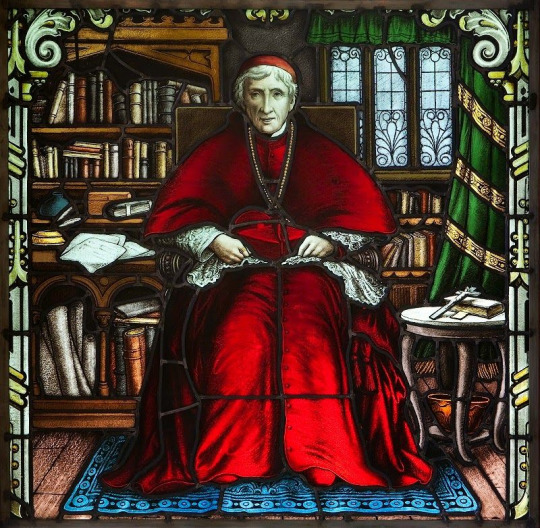
1801 – John Henry Newman, the English Catholic cardinal was born on this date (d.1890). There's no denying that the great English churchman's most important work, the Apologia pro Vita Sua, contains many homoerotic passages of intense beauty, but is there reason to suspect that his love for other men extended to the flesh itself?
Newman was particularly devoted to his friend Brother Ambrose, fourteen years his junior. Grief-stricken by his death in 1875, the cardinal threw himself upon the deathbed and spent the night with the corpse. Newman joined his friend in death fifteen years later. By his own instructions, his body was buried in the same grave. The two men have a joint memorial stone inscribed with the motto Newman had chosen, Ex umbris et imaginibus in veritatem ("Out of shadows and phantasms into the truth"). By any measure, theirs was a close friendship

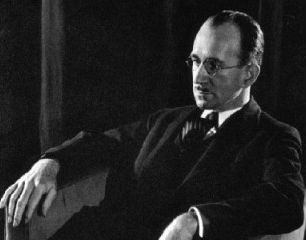
1892 – on this date the American psychiatrist Harry Stack Sullivan was born (d.1949). In the understanding of mental disorders, this influential psychiatrist believed that psychoanalysis, although essentially valid, needed to be supplemented by a thoroughgoing study of the impact of cultural forces upon the personality.
He made his reputation based on his experimental treatment ward for schizophrenics at the Sheppard Pratt Hospital, between 1925-29. The ward had a cure rate of approximately 86% without neuroleptic medication. All of the patients on the ward were gay men, and the specially trained ward attendants were either gay or gay-friendly. Thus the patients, who were all young male homosexuals as well as schizophrenics, in their positive interactions with the attendants, would heal the wounds from societal prejudice and missing male intimacy.
As World War II approached, he sought to prevent the psychiatric casualties that had resulted during the brief involvement of the United States in World War I. Sullivan convinced the War Department that a systematic, professional mental health screening process with limited attention to sexual issues would help the government avoid the immense cost of treating wounded soldiers. This screening would identify gay men. Sullivan believed that such men were not suited to military service.
Sullivan held that everyone possessed an emotional and sexual interest in both sexes. Males normally passed through a homosexual phase, but men who remained homosexual suffered from faulty personality development. A Selective Service screening would work as a form of preventive psychiatry, a way of protecting gay men from sustaining damage. Although Sullivan thought adult homosexuals suffered from faulty personality development, he did not see homosexuality as an illness and separated himself from most of his professional peers by advocating that gay men and lesbians should be accepted as is.
In the years following his death, recognition of his accomplishments was intentionally overlooked because of his own homosexuality. Sullivan, however, is now acknowledged as the prime developer of the interpersonal approach to psychiatry and as one of the great American psychiatrists of the century.
Forgotten, finally, is his great "sin." In middle age, he adopted a fifteen-year-old male patient, with whom he lived as "father" and "son" for more than 15 years. Sullivan had a long-term sexual relationship with the young man, James Inscoe Sullivan ("Jimmie"). Jimmie was known to Sullivan's associates as his adopted son, which allowed Sullivan to keep his sexual identity in the closet.

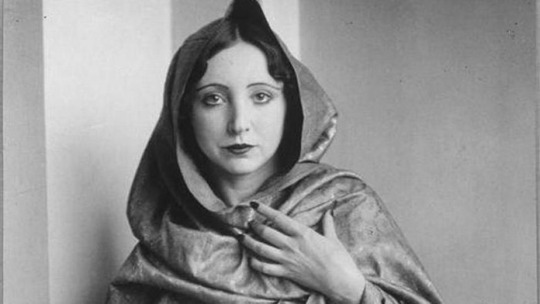
1903 – The bisexual novelist Anaïs Nin is best known for her sexually frank diaries and the erotica published after her death. (d.1977)
Nin was born in Neuilly-sur-Seine, a suburb of Paris, the only daughter and oldest child of Joaquin Nin, a Spanish composer and pianist who abandoned his family when she was ten years old, and Rosa Culmell, an operatic singer and daughter of a well-to-do Cuban family. Rosa took her three children to New York when Anaïs was eleven years old.
On board ship, she began a diary that would grow to 150 volumes in more than 50 years. Though the first volume would not be published until 1966, Nin began publishing poetic fiction based on her diary in 1936.
Nin's most prolific period of creativity was during the time that she lived with her husband, Hugh Guiler, in Paris from 1923 to 1939, especially after she met Henry Miller at the end of 1931. Her first book, just completed when she met Miller, was D.H. Lawrence: an Unprofessional Study (1932).
Out of the frenzied writing of her diary during this period of her sexual awakening—when she fell in love with first June and then Henry Miller—came a brief poetic novelette (The House of Incest, 1936) and a book of short fiction (The Winter of Artifice, 1939). These are still among her best fiction.
Though a severely censored and altered version of the diaries of this period became her Diary I (1966), the unexpurgated portions of this period appeared long after her death as Henry and June (1986) and Incest (1992).
The title of the latter volume, like the impetus for her diary writing, came from sexual violation and abandonment by her beloved, narcissistic father. She began her diary not only to win him back but to create the "good" girl whom he could love.
Though she saw him on various occasions when she first moved back to France, she reconciled with him in 1932. Then they began a sexual affair propelled both by his continued exploitation of her need for love and by her recent sexual awakening. Eventually, after psychoanalysis, she abandoned her father, who died in Cuba in 1949.
In the 1940s in New York City, Nin set up her own printing press in Greenwich Village; here she republished her Paris books and a collection of short fiction, Under a Glass Bell (1944).
She also wrote erotica—admitted hack work—for a dollar a page, money she gave to the youthful and needy artists in her circle. Her first mainstream publisher, Dutton, was secured for her by Gore Vidal, one of her growing group of gay and bisexual male friends (several of whom became her lovers).
After mining her diary for six novels—Ladders to Fire (1946), Children of the Albatross (1947), The Four Chambered Heart (1950), A Spy in the House of Love (1954), Seduction of the Minotaur (1961), and Collages (1964)-—Nin began publishing the diaries.
She loved emotionally and physically both men and women. Though she denies lesbianism in Seduction of the Minotaur, unpublished portions of her diary suggest otherwise. During the last nearly thirty years of her life, she divided her time alternately between two husbands, Hugh Guiler in New York City and Rupert Pole in Los Angeles.

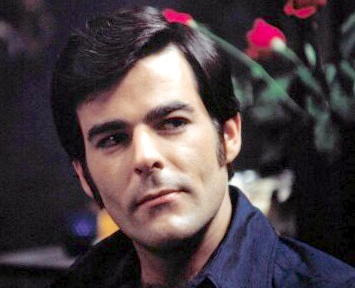
1940 – Keith Prentice (d.1992) was a Dayton, Ohio-born American TV, film and stage actor, whose most famous role was the part of Larry in both the original stage and film versions of The Boys in the Band. Prentice also appeared on the classic TV soap Dark Shadows during the series' final months in 1971. Until just several years ago, his picture was displayed on the Tasters Choice coffee label.
Prentice studied in New York City at the American Academy of Dramatic Arts. His stage musical credits include Sail Away, The Sound of Music, Paint Your Wagon, and The King and I. In 1968, he appeared off-Broadway in the non-musical The Boys in the Band, a once controversial play featuring gay characters at a dramatic birthday party - the Summer before the Stonewall gay civil rights riots. He also appeared in the movie version of the play. In 1971 Keith joined the cast of Dark Shadows playing Morgan Collins in the show's 1841PT plot line. Prentice also appeared as Nils Fowler in the 1972 film The Legend of Nigger Charley and had a small role in the 1980 film Cruising which, like Boys in the Band, was directed by William Friedkin.
In 1982 Keith Prentice co-founded Kettering Theatre Under The Stars, and directed summer shows there until the year of his death. He died of AIDS-related cancer on September 27, 1992 in Kettering, Ohio.

1947 – A New York court upholds the conviction of a man for public indecency for sending a young man a letter stating his desire to fuck him. A month later, another court frees him because there was actually no law against what he did. 😂


1955 – Sister Boom Boom, also known as Sister Mary Boom Boom, was the drag nun persona of astrologer Jack Fertig (d.2012), a retired member of the Sisters of Perpetual Indulgence, a street performance organization that uses drag and religious imagery to call attention to sexual intolerance and satirize issues of gender and morality.
Fertig was born in Chicago, Illinois. Born to a Jewish father and a Christian mother, he converted to Islam in 2003. Often erroneously credited as a founder of the Sisters of Perpetual Indulgence, Sister Boom Boom actually joined the Sisters in 1980, several months after its founding. She left the order in the Spring of 1986. Her full name was Sister Rose of the Bloody Stains of the Sacred Robes of Jesus, which would trail into a sing-song cadence and a long fermata. This called for a short nickname.
In 1982, Sister Boom Boom ran for a seat on the San Francisco Board of Supervisors with agitprop campaigning tactics bringing humor and raising issues she felt were being ignored in the race. She won 23,124 votes with her occupation listed as "Nun of the Above". Five supervisors were elected; she placed eighth. After she started campaigning for mayor in 1983 against incumbent Dianne Feinstein, San Francisco passed an ordinance requiring candidates to use only their legal names on the ballot. This was commonly called the "Sister Boom Boom law".
Boom Boom wrote a theatrical-ritual exorcism of Jerry Falwell and Phyllis Schlafly performed in Union Square on July 13, the Friday before the 1984 Democratic National Convention before a crowd of 2,000. She is one of the characters in Emily Mann's play Execution of Justice about the trial of Dan White for the 1978 Moscone–Milk assassinations. George Moscone was mayor of San Francisco and Harvey Milk was the city's first openly gay supervisor. In the Broadway production she was played by Wesley Snipes.
Jack Fertig retired Sister Boom Boom in 1985, and joined a sobriety program.
Cleve Jones, AIDS activist and creator of the NAMES Project AIDS Quilt, remembers Sister Boom Boom as a "dear friend" and a "fierce advocate for the poor and immigrant communities." He also said, "I knew this person Sister Boom Boom and I knew Jack Fertig and it took me a year and a half to realize they were the same person!"
In 2009, a mysterious figure in a burqa, appeared at the Sisters of Perpetual Indulgence 30th Anniversary Exhibition at Yerba Buena Center for the Arts. The black silhouette revealed herself as "Sister Boom Boom XXX." When asked about the name change in a 2010 interview, Sister explained, "Sister Boom Boom is my slave name. Now that I am Muslim, I'm Boom Boom XXX." After the 30th anniversary, Sister Boom Boom XXX started to reconnect with the Sisters at socials and select public events. That same year, Sister Boom Boom XXX spoke ata "Sister Spirituality" panel for San Francisco's Buddhist Fellowship. It would be her last public appearance.
Fertig worked as an astrologer until his death in San Francisco, California, from liver cancer on August 5, 2012.

1976 – A Detroit jury awards more than $200,000 in damages to a man who contends that he was "turned into" a homosexual by a 1975 automobile accident in which his car was rear-ended by another vehicle.

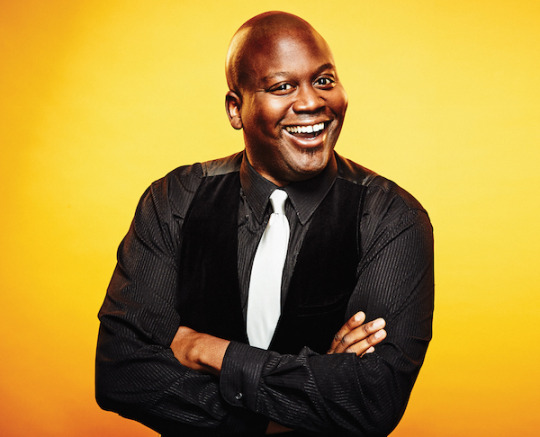
1979 – Tituss Burgess is an American actor and singer. He has appeared in numerous Broadway musicals and is known for his high tenor voice. He is best known for starring as Titus Andromedon on the Netflix comedy series Unbreakable Kimmy Schmidt (2015–2020), for which he has received five Primetime Emmy Award nominations.
Born and raised in Athens, Georgia, he attended Cedar Shoals High School where he was active in the theatre program. He graduated from the University of Georgia with a BA in music.He is gay.
Burgess made his great Broadway debut in the musical Good Vibrations as Eddie in 2005, and then appeared in Jersey Boys in 2005 as Hal Miller. He originated the role of "Sebastian the Crab" in the musical The Little Mermaid in 2007 and went on to the role of Nicely-Nicely Johnson, traditionally played by a white actor, in the revival of Guys and Dolls in 2009. He has also performed in several regional theater productions, including The Wiz and Jesus Christ Superstar.

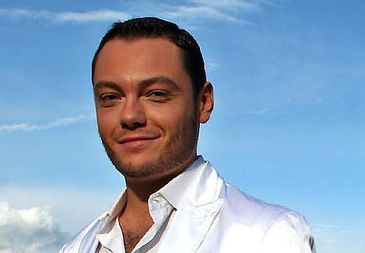
1980 – Tiziano Ferro is an Italian pop singer, songwriter, producer and author. He broke through in 2001 with his international hit single "Perdono" and has remained commercially successful since then, primarily in his home country. Ferro has released a Spanish version of each of his albums, and has also sung in English, Portuguese, and French. Known as the modern face of Italian pop music, he frequently writes songs for other artists.
In contrast to his flourishing professional life, Ferro's personal life was marked by ever increasing despondency. Convinced that he would have to give up his singing career if the truth about his sexuality were ever revealed, he kept family and friends at a distance, living alone in England. He was diagnosed as depressed in 2008 and started taking antidepressants. In late 2009 he came close to taking his own life, going as far as to write a suicide note.
In October 2010, at the height of his fame, Ferro came out as gay, admitting that he had remained closeted out of fear that his homosexuality was not compatible with a career as a pop singer.
In early 2010 his desperation had led him to break down and come out to his father, an event that inspired the title of his first book, Trent'anni e una chiacchierata con papà (Thirty years and a talk with dad). This book was published shortly after publicly coming out as gay in October 2010, and contains most of his personal diaries, dutifully kept since his teenage years.
The following year Ferro moved back to Italy to end his isolation and live closer to his friends and family.
Aside from his success as an artist, Ferro is well known for his other personal struggles. Having been overweight as a teenager, he has been outspoken about his battles with food addiction and eating disorders.
Since his debut in 2001, Ferro has worked himself up to becoming one of the best-selling artists in Italy today. Both his third album Nessuno è solo and fourth album Alla mia età were certified diamond. Despite his fears, his coming-out did not negatively affect his career, as fifth album L'amore è una cosa semplice was the best-selling album of 2012 in Italy, and the tour supporting this album included his first full stadium concert at the Stadio Olimpico in Rome.


1987 – Elliot Page (formerly Ellen Page) is a Canadian actor and producer.He first became known for his role in the film and television series Pit Pony (1997–2000), for which he won a Young Artist Award, and for recurring roles in Trailer Park Boys (2002) and ReGenesis (2004). Page also received recognition for his role in the film Hard Candy (2005), and won the Austin Film Critics Association's Award for Best Actress.
Elliot Page was born on February 21, 1987, in Halifax, Nova Scotia. His parents are Martha Philpotts, a teacher, and Dennis Page, a graphic designer.[3] Assigned female at birth, he was originally named Ellen Page. Page attended the Halifax Grammar School until grade 10, spent some time at Queen Elizabeth High School, and graduated from the Shambhala School in 2005. He subsequently spent two years in Toronto, Ontario, studying in the Interact Program at Vaughan Road Academy, along with close friend and fellow Canadian actor Mark Rendall.
Page had his cinematic breakthrough with the title role in Jason Reitman's film Juno (2007), earning nominations for an Academy Award, a BAFTA Award, a Critics' Choice Award, a Golden Globe Award and a Screen Actors Guild Award. He earned praise for roles in The Tracey Fragments (2007), Whip It (2009), Super (2010), Inception (2010), and Tallulah (2016). Page portrayed Kitty Pryde in the X-Men films The Last Stand (2006) and Days of Future Past (2014), produced the film Freeheld (2015) in which he also starred, and made his directorial debut with the documentary There's Something in the Water (2019). He provided voice acting and motion-capture acting for the main character in the video game Beyond: Two Souls (2013). Since 2019, he has portrayed Vanya Hargreeves in the Netflix series The Umbrella Academy.
Page publicly came out as a gay woman in February 2014 and subsequently as transgender in December 2020, announcing his new name as Elliot Page.
In January 2018, Page announced his marriage to dancer and choreographer Emma Portner on an unspecified date. The couple met after Page noticed Portner on Instagram.
On December 1, 2020, Page came out as transgender on his social media accounts, specified his pronouns as he/him and they/them, and revealed his new name, Elliot Page. GLAAD spokesperson Nick Adams stated that Page "will now be an inspiration to countless trans and non-binary people". His spouse Emma Portner expressed support for him coming out on the same day on her Instagram account, saying she was "so proud" of Page. Netflix tweeted: "So proud of our superhero! We love you Elliot!" Canadian Prime Minister Justin Trudeau and several celebrities, such as Ellen DeGeneres, James Gunn, and Kumail Nanjiani, expressed support for Page on social media after the announcement.

Today's Gay Wisdom
W.H. AUDEN'S PLATONIC BLOW
A Platonic Blow or "The Gobble Poem"
It was a spring day, a day for a lay, when the air
Smelled like a locker-room, a day to blow or get blown;
Returning from lunch I turned my corner and there
On a near-by stoop I saw him standing alone.
I glanced as I advanced. The clean white T-shirt outlined
A forceful torso; the light-blue denims divulged
Much. I observed the snug curves where they hugged the behind,
I watched the crotch where the cloth intriguingly bulged.
Our eyes met. I felt sick. My knees turned weak.
I couldn't move. I didn't know what to say.
In a blur I heard words, myself like a stranger speak
"Will you come to my room?" Then a husky voice "O.K."
I produced some beer and we talked. Like a little boy
He told me his story. Present address: next door.
Half Polish, half Irish. The youngest. From Illinois.
Profession: mechanic. Name: Bud. Age: twenty-four.
He put down his glass and stretched his bare arms along
The back of my sofa. The afternoon sunlight struck
The blond hairs on the wrist near my head. His chin was strong,
His mouth sucky. I could hardly believe my luck.
And here he was, sitting beside me, legs apart.
I could bear it no longer. I touched the inside of his thigh.
His reply was to move it closer. I trembled, my heart
Thumped and jumped as my fingers went to his fly.
I opened a gap in the flap. I went in there.
I sought for a slit in the gripper shorts that had charge
Of the basket I asked for. I came to warm flesh, then to hair.
I went on. I found what I hoped. I groped. It was large.
He responded to my fondling in a charming, disarming way:
Without a word he unbuckled his belt while I felt,
And lolled back, stretching his legs. His pants fell away.
Carefully drawing it out, I beheld what I held.
The circumcised head was a work of mastercraft
With perfectly bevelled rim, of unusual weight
And the friendliest red. Even relaxed, the shaft
Was of noble dimensions with the wrinkles that indicate
Singular powers of extension. For a second or two
It lay there inert, then it suddenly stirred in my hand,
Then paused as if frightened or doubtful of what to do,
And then with a violent jerk began to expand.
By soundless bounds it extended and distended, by quick
Great leaps it rose, it flushed, it rushed to its full size,
Nearly nine inches long and three inches thick,
A royal column, ineffably solemn and wise.
I tested its length and strength with a manual squeeze,
I bunched my fingers and twirled them about the knob,
I stroked it from top to bottom. I got on my knees.
I lowered my head. I opened my mouth for the job.
But he pushed me gently away. He bent down. He unlaced
His shoes. He removed his socks. Stood up. Shed
His pants altogether. Muscles in arms and waist
Rippled as he whipped his T-shirt over his head.
I scanned his tan, enjoyed the contrast of brown
Trunk against white shorts taut around small
Hips. With a dig and a wriggle he peeled them down.
I tore off my clothes. He faced me, smiling. I saw all.
The gorgeous organ stood stiffly and straightly out
With a slight flare upwards. At each beat of his heart it threw
An odd little nod my way. From the slot of the spout
Exuded a drop of transparent viscous goo.
The lair of hair was fair, the grove of a young man,
A tangle of curls and whorls, luxuriant but couth.
Except for a spur of golden hairs that fan
To the neat navel, the rest of the belly was smooth.
Well-hung, slung from the fork of the muscular legs,
The firm vase of his sperm like a bulging pear,
Cradling its handsome glands, two herculean eggs,
Swung as he came towards me, shameless, bare.
We aligned mouths. We entwined. All act was clutch,
All fact, contact, the attack and the interlock
Of tongues, the charms of arms. I shook at the touch
Of his fresh flesh. I rocked at the shock of his cock.
Straddling my legs a little I inserted his divine
Person between and closed on it tight as I could.
The upright warmth of his belly lay all along mine.
Nude, glued together, for a minute we stood.
I stroked the lobes of his ears, the back of his head
And the broad shoulders. I took bold hold of the compact
Globes of his bottom. We tottered. He fell on the bed.
Lips parted, eyes closed, he lay there, ripe for the act,
Mad to be had, to be felt and smelled. My lips
Explored the adorable masculine tits. My eyes
Assessed the chest. I caressed the athletic hips
And the slim limbs. I approved the grooves of the thighs.
I hugged, I snugged into an armpit, I sniffed
The subtle whiff of its tuft, I lapped up the taste
Of its hot hollow. My fingers began to drift
On a trek of inspection, a leisurely tour of the waist.
Downward in narrowing circles they playfully strayed,
Encroached on his privates like poachers, approached the prick,
But teasingly swerved, retreated from meeting. It betrayed
Its pleading need by a pretty imploring kick
."Shall I rim you?" I whispered. He shifted his limbs in assent,
Turned on his side and opened his legs, let me pass
To the dark parts behind. I kissed as I went
The great thick cord that ran back from his balls to his arse.
Prying the buttocks aside, I nosed my way in
Down the shaggy slopes. I came to the puckered goal.
It was quick to my licking. He pressed his crotch to my chin.
His thighs squirmed as my tongue wormed in his hole.
His sensations yearned for consummation. He untucked
His legs and lay panting, hot as a teen-age boy,
Naked, enlarged, charged, aching to get sucked,
Clawing the sheet, all his pores open to joy.
I inspected his erection. I surveyed his parts with a stare
From scrotum level. Sighting along the underside
Of his cock I looked through the forest of pubic hair
To the range of the chest beyond, rising lofty and wide.
I admired the texture, the delicate wrinkles and the neat
Sutures of the capacious bag. I adored the grace
Of the male genitalia. I raised the delicious meat
Up to my mouth, brought the face of its hard-on to my face.
Slipping my lips round the Byzantine dome of the head
With the tip of my tongue I caressed the sensitive groove.
He thrilled to the trill. "That's lovely!" he hoarsely said.
"Go on! Go on!" Very slowly I started to move.Gently, intently, I slid to the massive base
Of his tower of power, paused there a moment down
In the warm moist thicket, then began to retrace
Inch by inch the smooth way to the throbbing crown.
Indwelling excitements swelled at the delights to come
As I descended and ascended those thick distended walls.
I grasped his root between my left forefinger and thumb
And with my right hand tickled his heavy, voluminous balls.
I plunged with a rhythmical lunge, steady and slow,
And at every stroke made a corkscrew roll with my tongue.
His soul reeled in the feeling. He whimpered "Oh!"
As I tongued and squeezed and rolled and tickled and swung.
Then I pressed on the spot where the groin is joined to the cock,
Slipped a finger into his arse and massaged him from inside.
The secret sluices of his juices began to unlock.
He melted into what he felt. "O Jesus!" he cried.
Waves of immeasurable pleasures mounted his member in quick
Spasms. I lay still in the notch of his crotch inhaling his sweat.
His ring convulsed round my finger. Into me, rich and thick,
His hot spunk spouted in gouts, spurted in jet after jet.


25 notes
·
View notes
Note
Hi, hope you're having a nice day. What would you say are your top 5 favourite Saints? Also Tumblr is trying to convince me to spell favourite like an American and this is tyranny.
Hi! today's gone okay, thanks! hmm... my top 5 saints... idk if I have a specific order 😅
Padre Pio is my man (confirmation/patron saint)
Imelda Lambertini
Zelie Martin
Cardinal John Henry Newman is pretty cool.
Maximilian Kolbe as well.
And the Blessed Mother and St Joseph are in their own special category.
I also have an undying love for all the Incorruptibles! but yeah I think that's it... something like that.
what about you???
(also HAHA JOIN US IN FREEDOM LAND!!!! 💓🤍💙🧨🇺🇸🦅🦅🦅)
3 notes
·
View notes
Photo
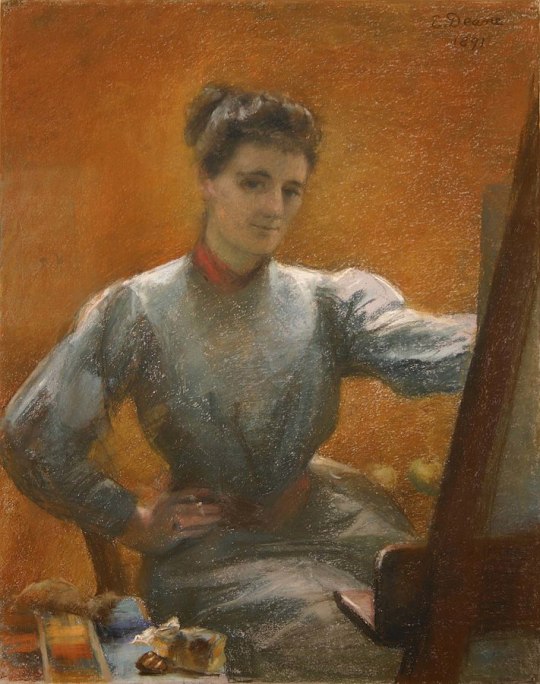
Emmeline Deane - Self Portrait - 1891
Emmeline Deane (1858 – 1944) was a British portrait painter.
Emmeline Deane was born in Bath, one of thirteen children of the Rev. John Bathurst Deane, a South African-born English clergyman and author, and Louisa Deane, daughter of Sealy Fourdrinier. Her siblings included novelist Mary Bathurst Deane and Eleanor Deane Wodehouse, mother of author P. G. Wodehouse.
Deane trained at the Académie Julian in Paris. She exhibited numerous times at the Royal Academy between 1879 and 1892. Her works include a portrait of Cardinal John Henry Newman, her first cousin once removed, that is in the National Portrait Gallery and a celebrated portrait of painter Anna Bilińska, her classmate in Paris, in mourning dress that is in the Victoria Art Gallery. Bilińska's portrait, depicting the artist in deep mourning, was painted by Deane in Paris shortly after Bilińska's father died in 1882. This painting evoked such emotional intensity of loss that, when exhibited in Paris and London, it "caused such a stir that it featured in a cartoon in Punch magazine." The work is considered to be significant because it was not common, at that time, for women painters to create formal salon-style portraits of other women painters, let alone to exhibit them.
Emmeline Deane died in 1944 in Uxbridge.
49 notes
·
View notes
Text
The teaching and assistance of the Church does not supply all conceivable needs, but those which are ordinary; thus, for instance, the sacraments are necessary for dying in the grace of God and hope in heaven, yet, when they cannot be got, acts of faith, hope, and contrition, with the desire for those aids which the dying man has not, will convey the substance what those aids ordinarily convey. And so a Catechumen, not yet baptized, may be saved by his purpose and preparation to receive the rite. And so, again, though "Out of the Church there is no salvation," this does not hold in the case of good men who are in invincible ignorance.
- Cardinal John Henry Newman (Certain Difficulties Felt By Anglicans in Catholic Teaching, Volume II, pages 244).
6 notes
·
View notes
Text
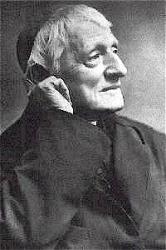
Newman, John Henry , D.D. The hymnological side of Cardinal Newman's life and work is so small when compared with the causes which have ruled, and the events which have accompanied his life as a whole, that the barest outline of biographical facts and summary of poetical works comprise all that properly belongs to this work. Cardinal Newman was the eldest son of John Newman, and was born in London, Feb. 21, 1801
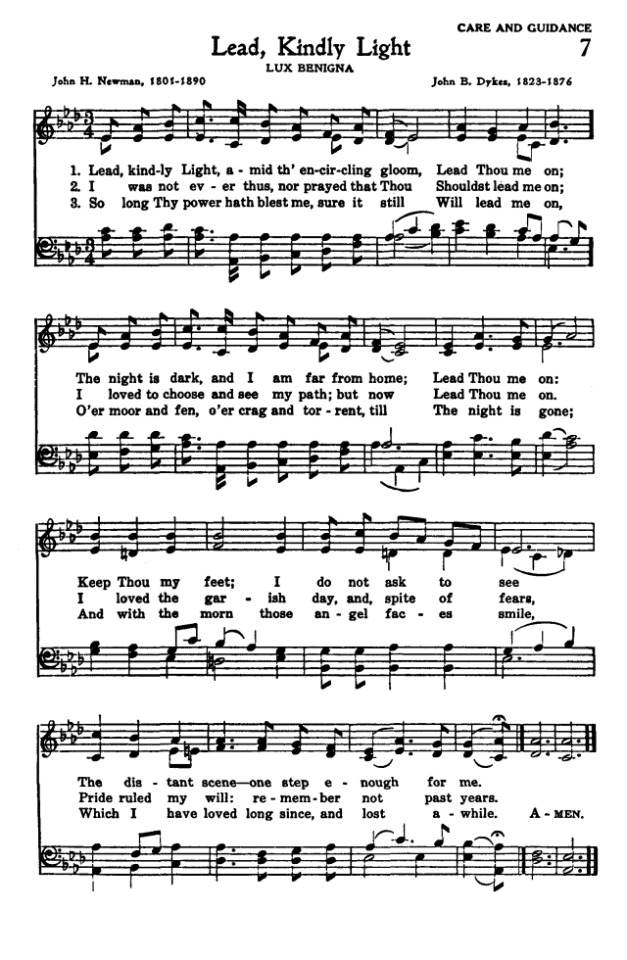
2 notes
·
View notes
Photo
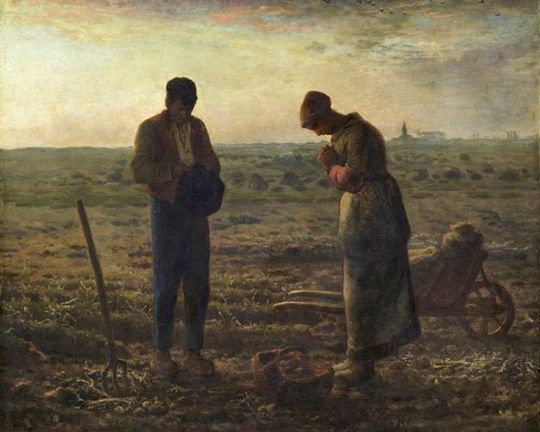
“We are slow to master the great truth that even now Christ is, as it were, walking among us, and by His hand, or eye, or voice, bidding us to follow Him. We do not understand that His call is a thing that takes place now. We think it took place in the Apostles' days, but we do not believe in it; we do not look for it in our own case.
God's presence is not discerned at the time when it is upon us, but afterwards, when we look back upon what is gone and over. The world seems to go on as usual. There is nothing of heaven in the face of society, in the news of the day.
And yet the ever-blessed Spirit of God is there, ten times more glorious, more powerful than when He trod the earth in our flesh.
God beholds you. He calls you by your name. He sees you and understands you as He made you. He knows what is in you, all your peculiar feelings and thoughts, your dispositions and likings, your strengths and your weaknesses. He views you in your day of rejoicing and in your day of sorrow. He sympathizes in your hopes and your temptations. He interests Himself in all your anxieties and remembrances, all the risings and fallings of your spirit.
He encompasses you round and bears you in His arms. He notes your very countenance, whether smiling or in tears. He looks tenderly upon you. He hears your voice, the beating of your heart, and your very breathing. You do not love yourself better than He loves you. You cannot shrink from pain more than He dislikes your bearing it; and if He puts it on you, it is as you would put it on yourself, if you would be wise, for a greater good afterwards. There is an inward world, which none see but those who belong to it. There is an inward world into which they enter who come to Christ, though to men in general they seem as before. If they drank of Christ's cup it is not with them as in time past. They came for a blessing, and they have found a work.
To their surprise, as time goes on, they find that their lot is changed. They find that in one shape or another adversity happens to them. If they refuse to afflict themselves, God afflicts them.
Why did you taste of His heavenly feast, but that it might work in you—why did you kneel beneath His hand, but that He might leave on you the print of His wounds?
God has created me to do Him some definite service; He has committed some work to me which He has not committed to another. I have my mission— I may never know it in this life but I shall be told it in the next.
I am a link in a chain, a bond of connection between persons. He has not created me for naught. I shall do good, I shall do His work. I shall be an angel of peace, a preacher of truth in my own place while not intending it if I do but keep His commandments.
Therefore I will trust Him. Whatever I am, I can never be thrown away. If I am in sickness, my sickness may serve Him; in perplexity, my perplexity may serve Him. If I am in sorrow, my sorrow may serve Him.
He does nothing in vain. He knows what He is about. He may take away my friends. He may throw me among strangers. He may make me feel desolate, make my spirits sink, hide my future from me— still He knows what He is about.
Every century is like every other, and to those who live in it seems worse than all times before it. Let us feel what we really are— sinners attempting great things. Let us simply obey God's will, whatever may come. He can turn all things to our eternal good. Easter day is preceded by the forty days of Lent, to show us that they only who sow in tears shall reap in joy.
The more we do, the more shall we trust in Christ; and that surely is no morose doctrine, that leads us to soothe our selfish restlessness, and forget our fears, in the vision of the Incarnate Son of God.
May the Lord support us all the day long, till the shades lengthen, and the evening comes, and the busy world is hushed, and the fever of life is over, and our work is done. Then in His mercy may He give us safe lodging, and a holy rest, and peace at last.”
~John Henry Newman
(Art: The Angelus, by Jean Francois Millet 1857-59)
#Christian art#The Angelus#Cardinal John Henry Newman#Lord Jesus Christ#obey God's will#God#workday#mercy#trust God#God beholds you#God loves you#society#God reigns#prayer
18 notes
·
View notes
Text

“If we are intended for great ends, we are called to great hazards.” –His Eminence, St. John Henry Cardinal Newman
Laudetur Jesus Christus! On this day in 1971, His Eminence, Venerable József Cardinal Mindszenty (1892 - 1975), Archbishop of Esztergom and Prince-Primate of Hungary, was released from exile, bringing an end to his fifteen-year political asylum in the United States Embassy in Budapest.
Born in Csehimindszent, Austria-Hungary, and ordained a priest in 1915, Mindszenty was a prolific writer who penned many texts in defense of traditional motherhood and the family, and he was an ardent defender of the Habsburg claim to the throne; accordingly, he vehemently opposed the socialist government of Mihály Károlyi, the communist government of Béla Kun, and the Arrow Cross Party, all three of which arrested him for his Catholicism during his life.
Having been made Bishop of Veszprém in 1944 and then Archbishop of Esztergom and Prince-Primate of Hungary the following year after the collapse of the Kingdom of Hungary, Mindszenty was elevated to the rank of Cardinal in 1946 by His Holiness, Pope Venerable Pius XII, who told him that, “Among these thirty-two [new Cardinals], you will be the first to suffer the martyrdom symbolized by this red color.” True to this prophecy, His Eminence was persecuted by the ruling Hungarian Working People’s Party, which regarded Mindszenty as a “clerical reactionary” harboring “aristocratic attitudes” in light of his refusal to give up his royal titles and his refusal to comply with the Party’s abolition of private farm ownership and Catholic religious orders.
Arrested in 1948 for treason and conspiracy to restore the Habsburg Monarchy, Mindszenty was repeatedly tortured and then convicted in a “show trial” whose perpetrators were excommunicated by Pius XII. Following his predetermined conviction, Mindszenty was tortured in prison for seven years until, in 1956, he was liberated by Catholic insurgents during the Hungarian Revolution and taken to the United States Embassy in Budapest, where he was confined for the next fifteen years in order that he would not be arrested by the invading Soviet Army.
5 notes
·
View notes
Text
“In the early twentieth century, Henry Goodell, president of what was then the Massachusetts Agricultural College, celebrated "the work of these grand old monks during a period of fifteen hundred years. They saved agriculture when nobody else could save it. They practiced it under a new life and new conditions when no one else dared undertake it." Testimony on this point is considerable. "We owe the agricultural restoration of a great part of Europe to the monks," observes another expert. "Wherever they came," adds still another, "they converted the wilderness into a cultivated country; they pursued the breeding of cattle and agriculture, labored with their own hands, drained morasses, and cleared away forests. By them Germany was rendered a fruitful country." Another historian records that "every Benedictine monastery was an agricultural college for the whole region in which it was located.”1 Even the nineteenth-century French statesman and historian François Guizot, who was not especially sympathetic to the Catholic Church, observed: "The Benedictine monks were the agriculturists of Europe; they cleared it on a large scale, associating agriculture with preaching.”2
- Thomas E. Woods Jr., Ph.D., “How the Monks Saved Civilization,” How the Catholic Church Built Western Civilization
—
1. Alexander Clarence Flick, The Rise of the Medieval Church (New York: Burt Franklin, 1909), 216.
2. See John Henry Cardinal Newman, Essays and Sketches, vol. 3, Charles Frederick Harold, ed. (New York: Longmans, Green and Co., 1948), 264-65.
2 notes
·
View notes
Photo

Happy Feast Day
Saint John Henry Newman
1801-1890
Feast day: October 9
John Henry Newman, also referred to as Cardinal Newman and the Saint John Henry Newman was an important figure in the religious history of England in the 19th century. He was known nationally by the mid-1830s. Originally an Evangelical Oxford academic and priest in the Church of England, he left the Church of England in 1845 and was received into the Roman Catholic Church where he was eventually granted the rank of cardinal by Pope Leo XIII. His canonization is on October 13, 2019
{website}
49 notes
·
View notes
Text
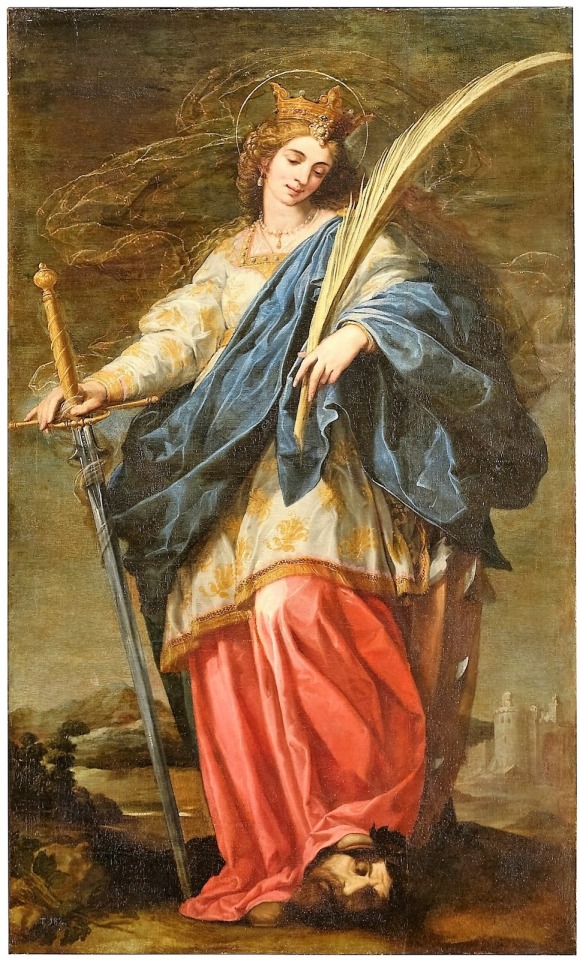
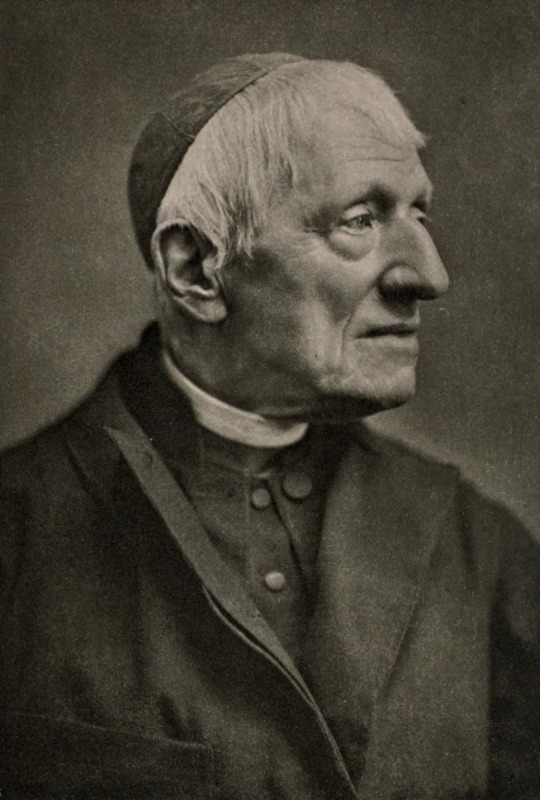
About St Catherine of Alexandria
About St John Henry Cardinal Newman
Losers' Bracket Round 1
#st catherine of alexandria#st john henry newman#st john henry cardinal newman#catholic saint tournament#christianity#polls#tumblr tournament#catholic saints#catholicism#tumblr bracket#tumblr polls#theology#catholic
9 notes
·
View notes